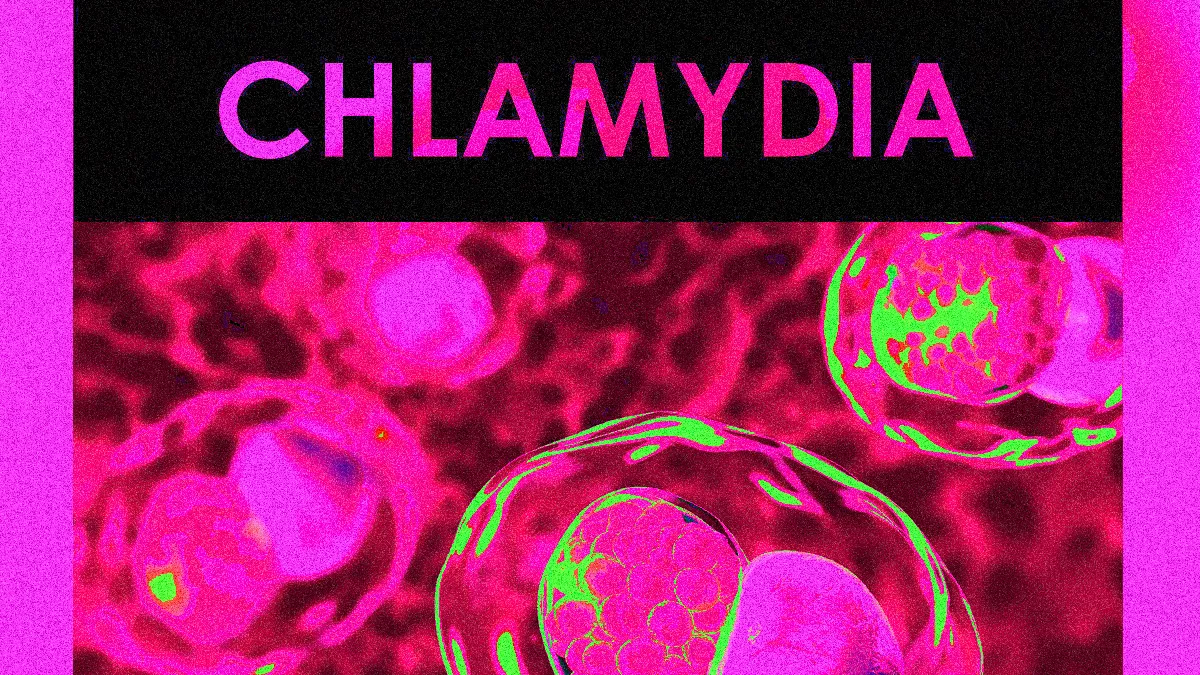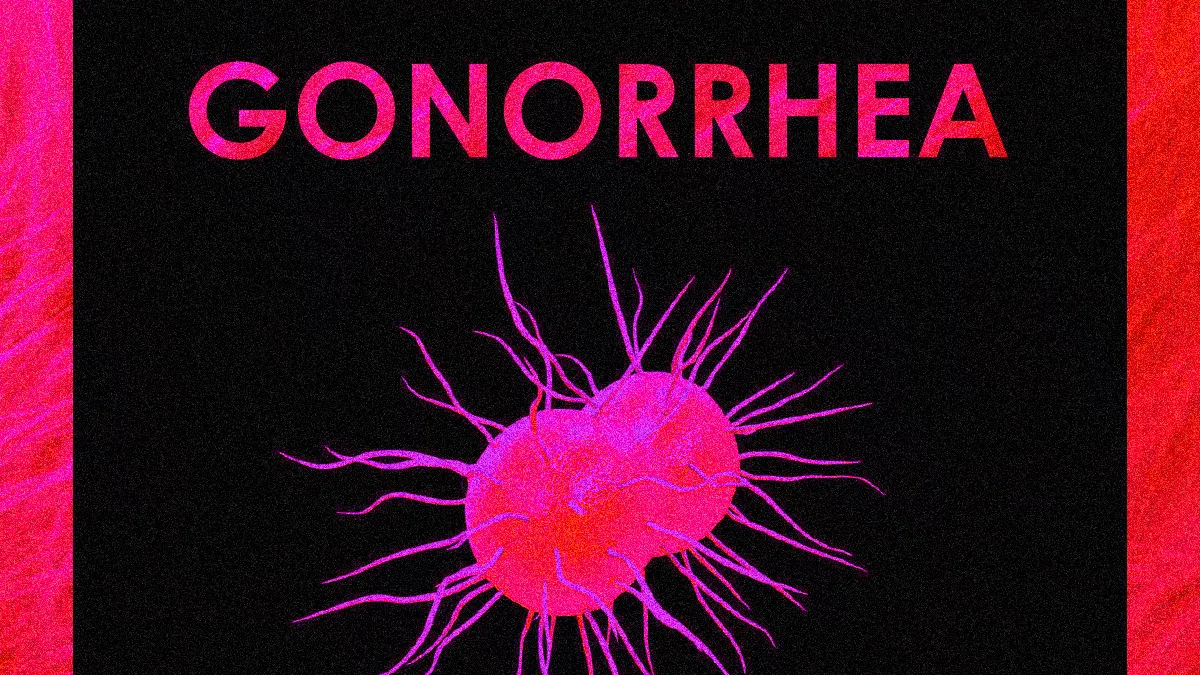Genital HERPES
7841
A herpes infection cannot be cured. After you become infected with HSV, the virus stays in the body for life.

Dr.Deyn | 9 August 2019, Reviewed and updated on 3 March 2021
GENITAL HERPES (HERPES GENITALIA)
What is genital herpes?
Genital herpes is a sexually transmitted disease (STD) caused by the herpes simplex viruses type 1 or type 2.
How common is genital herpes?
Genital herpes infection is prevalent in the United States. The CDC estimates that approximately 776,000 new herpes infections occur annually. Nationwide, 15.5% of individuals aged 14 to 49 are infected with HSV-2. The actual prevalence of genital herpes is likely higher than 15.5% due to an increasing number of infections caused by HSV-1. Typically acquired in childhood, the decline in HSV-1 infection rates over recent decades may have made people more susceptible to genital herpes from this strain.
HSV-2 infection is more common in women than in men, with rates of 20.3% for women compared to 10.6% for men in the 14 to 49 age group. The virus is more easily transmitted from men to women than vice versa. Additionally, HSV-2 is more prevalent among non-Hispanic blacks (41.8%) than non-Hispanic whites (11.3%), a disparity that persists even among individuals with similar numbers of lifetime sexual partners. For instance, among those with 2–4 lifetime partners, the prevalence of HSV-2 is still higher in non-Hispanic blacks (34.3%) compared to non-Hispanic whites (9.1%) or Mexican Americans (13%). Most individuals infected with the virus are unaware of their status, with an estimated 87.4% of 14–49-year-olds with HSV-2 in the U.S. having never received a clinical diagnosis.
How do people get genital herpes?
Infections are transmitted through contact with lesions, mucosal surfaces, genital secretions, or oral secretions. HSV-1 and HSV-2 can also be shed from skin that looks normal. Generally, a person can only get an HSV-2 infection during sexual contact with someone who has a genital HSV-2 infection. Transmission most commonly occurs from an infected partner who does not have visible sores and who may not know that he or she is infected. In persons with asymptomatic HSV-2 infections, genital HSV shedding occurs on 10% of days, and on most of those days, the person has no signs or symptoms.
What are the symptoms of genital herpes?
Most people infected with HSV-1 or HSV-2 are asymptomatic or experience very mild symptoms that often go unnoticed or are mistaken for another skin condition. Consequently, 87.4% of those infected remain unaware of their status. When symptoms do occur, they typically manifest as one or more vesicles on or around the genitals, rectum, or mouth (oral herpes). The average incubation period after exposure is about four days, with a range of two to twelve days. These vesicles can rupture, leading to painful ulcers that may take two to four weeks to heal. This occurrence is referred to as an "outbreak" or episode.
The clinical manifestations of genital herpes vary between the initial and recurrent outbreaks of HSV. The first outbreak often involves a longer duration of herpetic lesions, increased viral shedding (which raises the likelihood of transmission), and systemic symptoms such as fever, body aches, swollen lymph nodes, or headaches.
Recurrent outbreaks of genital herpes are common during the first year following infection. Approximately half of the patients who recognize recurrences report prodromal symptoms, such as mild tingling or shooting pains in the legs, hips, or buttocks, occurring hours to days before the appearance of herpetic lesions. Symptoms during recurrent outbreaks are generally shorter in duration and less severe than those of the initial outbreak. While the infection can persist in the body indefinitely, the frequency of outbreaks usually decreases over time. Additionally, recurrences and subclinical shedding are much less frequent for genital HSV-1 infections compared to genital HSV-2 infections.
A herpes infection cannot be cured. Once infected with HSV, the virus remains in the body for life, "hiding" in specific nerve cells and leading to recurrent outbreaks of sores in some individuals. These recurring infections can be triggered by factors such as stress, fatigue, sunlight, or other illnesses like a cold or flu. While medication can alleviate symptoms and reduce the duration of outbreaks, it cannot eliminate the infection.
What are the complications of genital herpes?
Genital herpes can lead to painful genital ulcers that may be severe and persistent in individuals with suppressed immune systems, such as those with HIV. Both HSV-1 and HSV-2 can also cause rare but serious complications, including blindness, encephalitis (inflammation of the brain), and aseptic meningitis (inflammation of the membranes surrounding the brain). Additionally, extragenital lesions may develop in areas such as the buttocks, groin, thighs, fingers, or eyes during the infection.
Individuals diagnosed with genital herpes often have concerns about its effects on their overall health, sex life, and relationships. There can be significant feelings of embarrassment, shame, and stigma associated with a herpes diagnosis, which can greatly impact a patient's relationships. Clinicians can help address these concerns by encouraging patients to understand that, while herpes is not curable, it is a manageable condition. Three key steps providers can take for newly diagnosed patients include offering information, providing support resources, and helping them explore their options, as a genital herpes diagnosis can influence perceptions of existing or future sexual relationships.
Window Period of Genital Herpes
Duration:
- The window period for genital herpes typically ranges from 2 to 12 days after exposure, with most people showing symptoms within an average of 4 days.
- However, some individuals may remain asymptomatic and not show visible signs of infection.
HIV/AIDS
What is the link between genital herpes and HIV?
Genital ulcerative disease caused by herpes increases the risk of transmitting and acquiring HIV during sexual activity. When genital herpes is present, the risk of contracting HIV may rise by 2 to 4 times if exposed to the virus. Ulcers or breaks in the skin or mucous membranes (such as those lining the mouth, vagina, and rectum) from a herpes infection can compromise the protective barrier normally offered by these tissues against infections, including HIV. Herpetic genital ulcers are prone to bleeding, and contact with the mouth, vagina, or rectum during sex can further elevate the risk of HIV transmission.
How does genital herpes affect a pregnant woman and her baby?
Neonatal herpes is one of the most severe complications associated with genital herpes. Healthcare providers should inquire about any history of genital herpes in all pregnant women. The virus can be transmitted from mother to child during pregnancy, childbirth, or shortly after birth, potentially leading to a life-threatening neonatal herpes infection. The risk of perinatal transmission is greater during the first outbreak than during recurrent outbreaks, so it is crucial for women to avoid contracting herpes while pregnant. Women should be advised to refrain from intercourse during the third trimester with partners known or suspected to have genital herpes.
A woman with genital herpes may be prescribed antiviral medication starting at 36 weeks of gestation and continuing through delivery to help minimize the risk of a recurrent outbreak. Routine screening for HSV in pregnant women is not recommended. However, upon the onset of labor, all women should be thoroughly examined and asked about any prodromal symptoms or herpetic lesions. If herpes symptoms are present, a cesarean delivery is advised to prevent HSV transmission to the newborn.
How is genital herpes diagnosed?
The preferred tests for patients with active genital ulcers caused by HSV include viral culture and polymerase chain reaction (PCR) for detecting HSV DNA. Viral culture involves collecting a sample from the sore, and after viral growth is observed, specific cell staining is used to differentiate between HSV-1 and HSV-2. However, culture sensitivity is low, particularly for recurrent lesions, and decreases as lesions heal. PCR is more sensitive and provides quicker, more accurate results, making it increasingly popular. Since viral shedding is intermittent, a negative culture or PCR result does not rule out HSV infection. Tzanck preparations are not sensitive or specific and should not be used.
Serologic tests, which are blood tests that detect antibodies to the herpes virus, are also available. Several ELISA-based serologic tests have been FDA-approved for commercial use. However, some older assays do not accurately differentiate between HSV-1 and HSV-2 antibodies, so providers should specifically request type-specific assays when ordering blood tests for their patients. The sensitivity of type-specific serologic tests for HSV-2 ranges from 80% to 98%, and false-negative results may be more common in the early stages of infection. Additionally, false-positive results can occur at low index values and should be confirmed with another test, such as Biokit or the Western Blot. Negative results for HSV-1 should be interpreted with caution, as some ELISA-based serologic tests are not sensitive enough to detect HSV-1 antibodies reliably.
PCR Multiplex DNA Test for 28 Infections 




Our STD PCR Multiplex test offers advanced technology to detect up to 28 infections, including Gonorrhea, Chlamydia, Syphilis, Herpes Simplex, Trichomonas, and Candida strains, all in one test. It can identify infections in various anatomical areas, such as the throat, urethra, anorectal region, vagina, cervix, sperm, and skin lesions. For urethral infections, the Urine PCR is recommended, while the Throat Swab PCR is ideal after oral sex. Anal Swab PCR is advised for unprotected anal sex, and the Vaginal Swab PCR is recommended for vaginal sex, with staff guidance available for all tests.
| PCR for 28 Infections (STD Multiplex) | Online results | |||
| Same day** | Next day | 3 days | 7 days | |
| Throat | 14,000 THB | 11,600 THB | 10,480 THB | 9,200 THB |
| Urine | 14,000 THB | 11,600 THB | 10,480 THB | 9,200 THB |
| Anal Swab | 14,000 THB | 11,600 THB | 10,480 THB | 9,200 THB |
| Vaginal Swab | 14,000 THB | 11,600 THB | 10,480 THB | 9,200 THB |
| Cervical Swab | 14,000 THB | 11,600 THB | 10,480 THB | 9,200 THB |
| Sperm | 14,800 THB | 12,640 THB | 11,600 THB | 10,080 THB |
| Skin Lesion Swab | 14,000 THB | 11,600 THB | 10,480 THB | 9,200 THB |
| Pooling | 15,600 THB | 13,280 THB | 12,400 THB | 10,800 THB |
| PCR for 2 Infections (Gonorrhea/Chlamydia) | Same day | Next day | 3 days | 7 days |
| Throat | 5,690 THB | 4,990 THB | 3,990 THB | 3,300 THB |
| Urine | 5,690 THB | 4,990 THB | 3,990 THB | 3,300 THB |
| Vaginal and Cervical Swab | 5,690 THB | 4,990 THB | 3,990 THB | 3,300 THB |
| Rectal Swab | 5,690 THB | 4,990 THB | 3,990 THB | 3,300 THB |
| Sperm* | 6,200 THB | 5,150 THB | 4,100 THB | 3,690 THB |
| Skin lesion Swab | 5,690 THB | 4,990 THB | 3,990 THB | 3,300 THB |
Contact us at info.bkk@pulse-clinic.com or chat on your preferred platform:
![]() +66 65 237 1936
+66 65 237 1936  @PULSEClinic
@PULSEClinic ![]() PulseClinic
PulseClinic
For the symptomatic patient, testing with both virologic and serologic assays can determine whether it is a new infection or a newly-recognized old infection. A primary infection would be supported by a positive virologic test and a negative serologic test, while the diagnosis of recurrent disease would be supported by positive virologic and serologic test results. 16
CDC does not recommend screening for HSV-1 or HSV-2 in the general population. Several scenarios where type-specific serologic HSV tests may be useful include
- Patients with recurrent genital symptoms or atypical symptoms and negative HSV PCR or culture;
- Patients with a clinical diagnosis of genital herpes but no laboratory confirmation;
- Patients who report having a partner with genital herpes;
- Patients presenting for an STD evaluation (especially those with multiple sex partners);
- Persons with HIV infection; and
- MSM at increased risk for HIV acquisitions
Is there a cure or treatment for herpes?
There is no cure for herpes; however, antiviral medications can help prevent or shorten outbreaks while the person is taking them. Additionally, daily suppressive therapy (the daily use of antiviral medication) can decrease the risk of transmitting the virus to partners.
Several clinical trials have explored vaccines for genital herpes infection, but there is currently no commercially available vaccine that protects it. One trial showed efficacy in women whose partners were infected with HSV-2, but only in those who were not already infected with HSV-1. No efficacy was found in men whose partners had HSV-2. A subsequent trial of the same vaccine demonstrated some protection against genital HSV-1 infection but did not provide any protection against HSV-2.
How can herpes be prevented?
Consistent and correct use of latex condoms can help reduce the risk of genital herpes; however, outbreaks can occur in areas not covered by the condom. The most effective way to prevent the transmission of sexually transmitted diseases, including genital herpes, is to abstain from sexual contact or to engage in a long-term mutually monogamous relationship with a tested and known uninfected partner.
Individuals with herpes should refrain from sexual activity with partners when sores or other symptoms are present. It's important to note that even in the absence of symptoms, a person can still transmit the virus to their partners. Partners of those infected should be informed of their potential risk of infection and encouraged to use condoms to minimize that risk. They can also seek testing to determine if they have HSV.
Trust PULSE CLINIC to take care of your health like other 45000 people from over 130 countries. We provide discreet professional service with high privacy. Here to help, not to judge.
WHAT DOES A POSITIVE HERPES IgM TEST RESULT MEAN?
Question: Does a Positive Herpes IgM Test Mean I Was Recently Infected with Herpes?
Answer: Not really.
Many doctors inform patients with a positive herpes IgM test that it indicates a recent herpes (HSV) infection. This belief stems from the understanding that HSV IgM antibodies typically peak shortly after initial infection and then decrease, which is a common notion regarding IgM antibodies in general.
In contrast, herpes IgG antibodies develop more slowly but are expected to remain elevated throughout the infection. Therefore, a positive HSV IgG test is generally interpreted as indicating that the infection is at least several months old.
However, recent research suggests that this conventional wisdom about herpes blood test results may be misleading. While individuals recently infected with herpes often test positive for HSV IgM, so do many people with recurrent herpes infections. Depending on the test and study, between 30% and 70% of individuals with recurrent herpes may also show positive HSV IgM results.
Herpes IgM tests are more likely to yield positive results in early infections than herpes IgG tests. This indicates that a positive herpes IgM test alone does not confirm a recent infection, especially if it is accompanied by a positive herpes IgG test.
If you have a positive herpes IgM test alongside a negative herpes IgG test, it is more likely that your results indicate a recent infection. However, false positives can occur, so if you have no symptoms, it may be wise to wait for a later IgG test.
If you do have symptoms, your doctor can directly test the lesions for herpes, eliminating the need to wait for an antibody response.
Herpes IgG antibodies take longer to develop than IgM antibodies. Even HSV IgM antibodies can take up to ten days to become detectable after primary infection. Therefore, if you believe you have been exposed but are asymptomatic, it's best to wait at least two weeks before getting tested—possibly longer depending on the tests available in your area. You might also consider repeating the test after six months if you do not have regular screenings.
WHAT DOES A POSITIVE HERPES IgG TEST RESULT MEAN?
Herpes IgG tests are a type of blood test used to detect the herpes simplex virus (HSV). These tests assess the body's immune response to a herpes infection rather than directly identifying the virus itself. Since it takes time for the immune response to develop following infection, the results aren't immediately detectable. Depending on the specific test used, it may take up to four months for an HSV IgG test to show a positive result.
How Does an HSV IgG Test Work?
When a person is infected, the immune system activates to combat the infection, which is true for all pathogens, not just herpes. This process involves the production of antibodies, which are specific proteins that target the infection.
For a new infection, it takes time for the body to produce robust antibodies. There are different types of antibodies, and the herpes blood tests primarily look for two: IgG and IgM. Herpes IgM antibodies can typically be detected within 7 to 10 days after the initial infection, remaining elevated for about two weeks before gradually declining.
Consequently, IgM testing is mainly used to identify acute infections, though antibody levels can also rise during outbreaks.
In contrast, herpes IgG antibodies appear a bit later following the initial infection. A positive herpes IgG test indicates that your body has been infected with the herpes simplex virus.
Additionally, type-specific herpes IgG tests can differentiate between HSV-1 and HSV-2, and these tests are generally more accurate than non-type-specific ones. However, they cannot determine whether an infection is oral or genital; monitoring symptoms is necessary for that.
HSV-1 typically causes oral herpes, while HSV-2 usually affects the genitals. However, there is an increasing number of cases of genital HSV-1, which is why herpes IgG and IgM tests can only confirm an infection without indicating the location.
HSV Blood Test Results & Timing of Infection
If you test positive for herpes IgG but negative for IgM, it likely means your infection is not recent, and you may have been infected for at least two months. Individuals with newer infections are more likely to test positive for both IgG and IgM, and they may also show a positive result for IgM alone. However, having both IgG and IgM positive does not necessarily indicate a recent infection, as 30 to 70 percent of patients with recurrent herpes may also test positive for herpes IgM.
| Positive IgG | Negative IgG | |
|---|---|---|
| Positive IgM | Infection date indeterminate | Acute/Recent infection |
| Negative IgM | Established Infection | No infection detected |
Test Accuracy
False positive and false negative results can occur with both HSV IgG and HSV IgM tests. So, if your herpes blood test results don’t align with your known risk factors and sexual history, try not to panic. Instead, discuss any concerns with your doctor regarding potential testing issues. Diagnostic testing is not infallible, and you might not be fully aware of your risk. Many people do not realize that herpes can be transmitted even when their partner shows no symptoms or is unaware of their infection.
PULSE Teleconsult: Connect with Doctors Anytime, Anywhere!
PULSE now offers PULSE Telemedicine & Teleconsult, enabling both new and existing patients to connect with doctors over 20 branches across 6 countries during clinic hours for non-emergency consultations. After the consultation, medications are delivered directly to the patient's doorstep.
3 Easy Steps to Get a Teleconsult with PULSE!
- Connect with us Either on WhatsApp, or Line App to Chat with us or call us to talk with our staff to request teleconsult.
- Verification & Consultation Our team will guide you through the verification process before your online consultation. Our doctors provide virtual consultations via available platforms, just like a traditional visit—only from the comfort of your home! Access care anywhere, anytime.
- Get Your Treatment From Home! If your doctor determines that medication is necessary, they will provide you with a medical certificate and prescription. Your medication can be delivered to your address through our online delivery service, or in some cases, you may choose to use the prescription at a local pharmacy. For certain conditions, further lab tests may be required, and the doctor may recommend scheduling an appointment at one of our clinics near you!
Test of Cure After Treatment with Our Teleconsult Services: Ensuring Complete Recovery
After completing treatment through our teleconsult services, your doctor may recommend a PCR test as a follow-up test of cure. This is to ensure the effectiveness of the treatment and that the prescribed medication has successfully eliminated the infection. We prioritize your health by confirming that no infection remains in your system, helping to prevent persistent or recurrent infections, complications, or the development of drug resistance. Typically, this test is performed around three weeks after your final day of treatment to ensure optimal results.
Teleconsult is now available for booking through our staff at PULSE Clinic. Our team will help guide you through the process to ensure your session with one of our doctors goes as smoothly as possible for you. Contact us at info.bkk@pulse-clinic.com or chat on your preferred platform:
Add us on Line and stay in touch.
Loading...
Clinic Locations
Loading...








